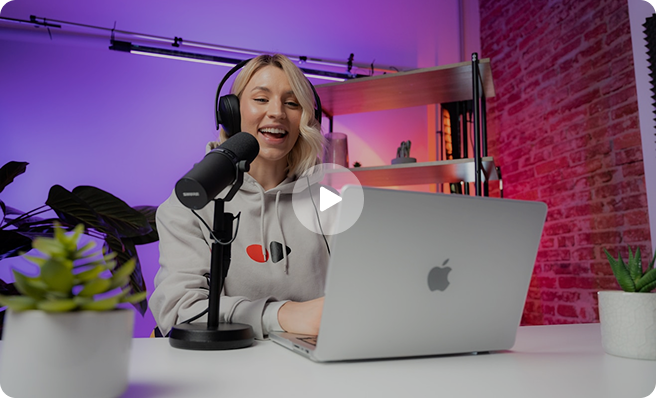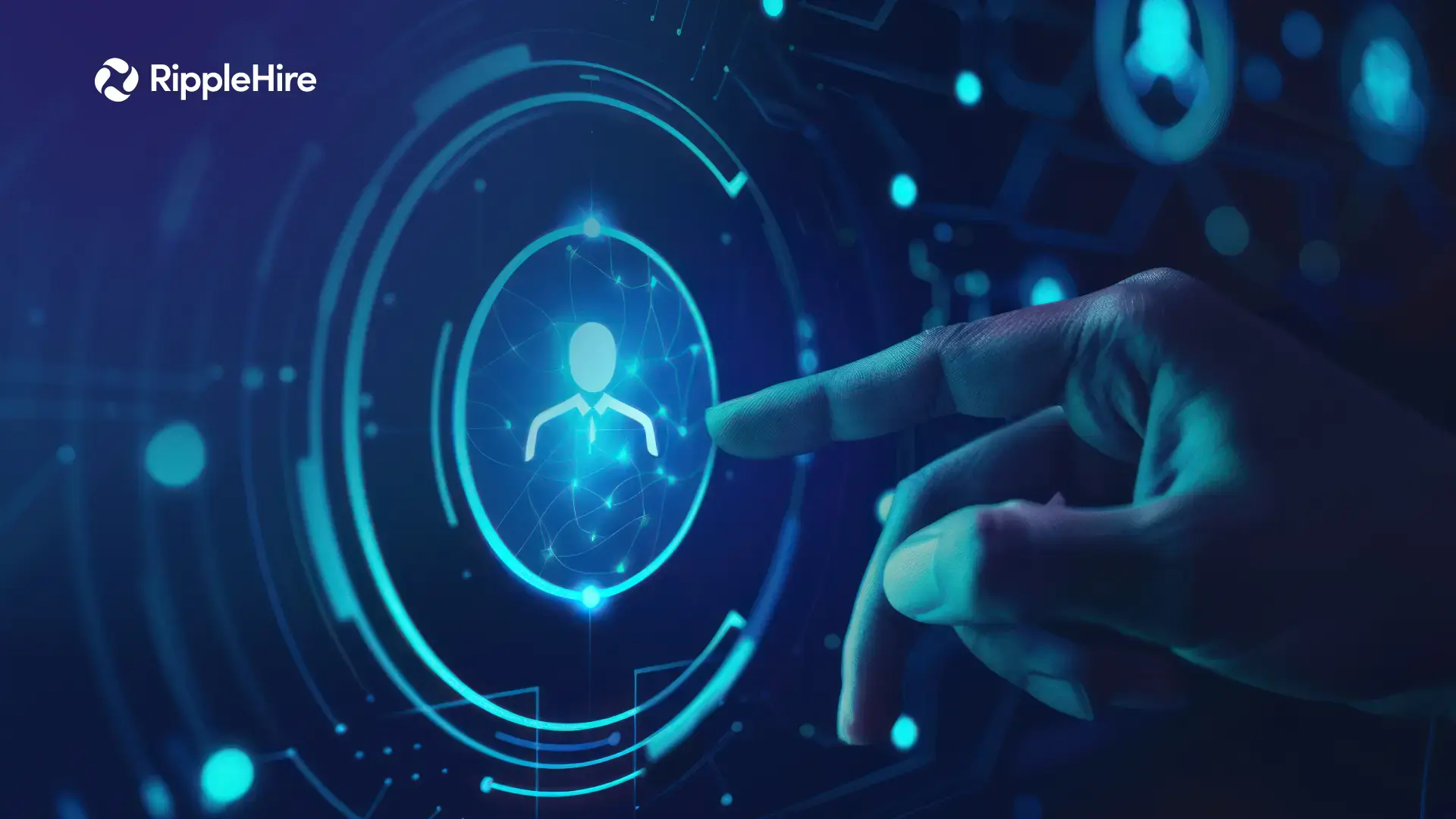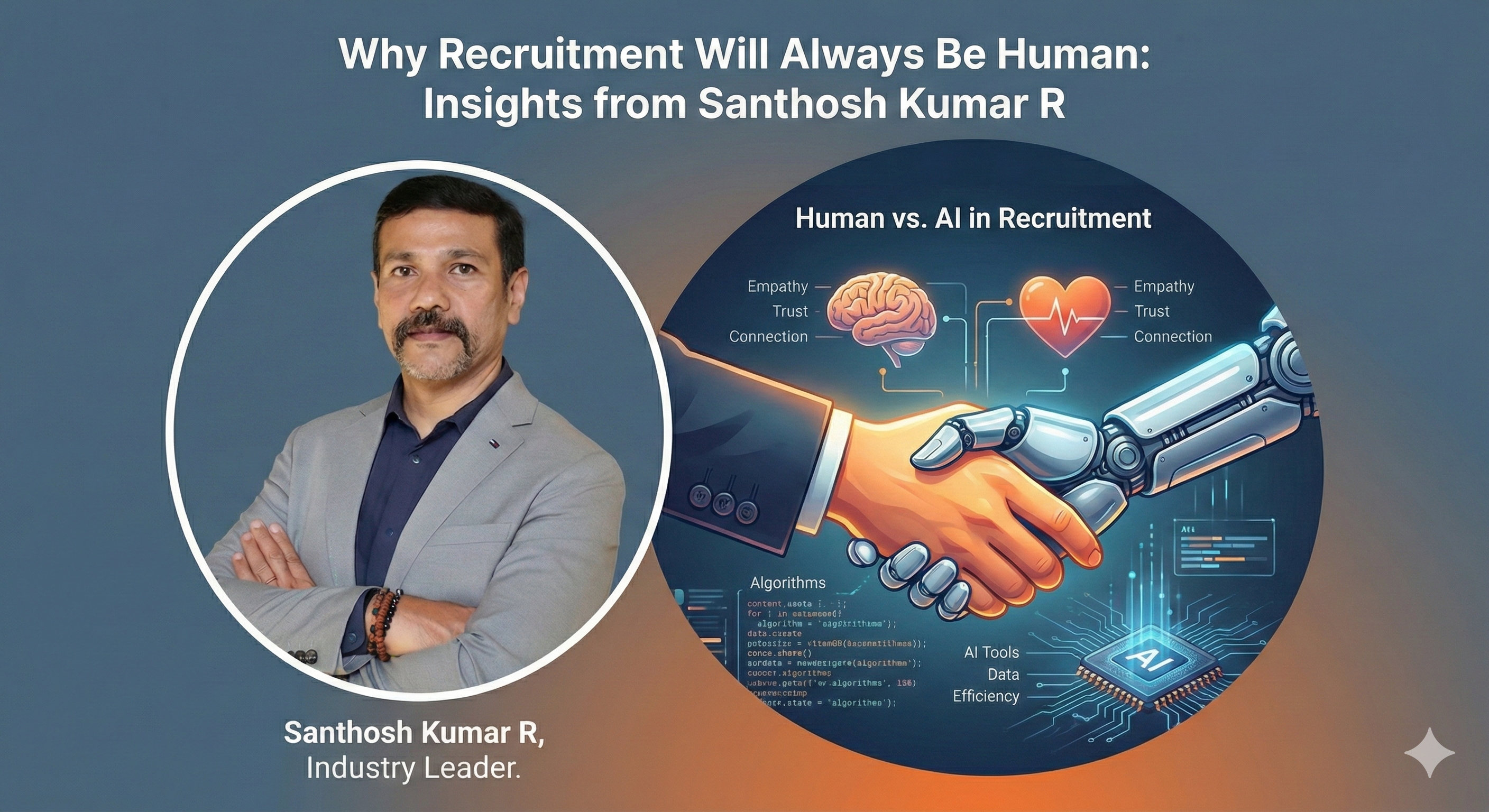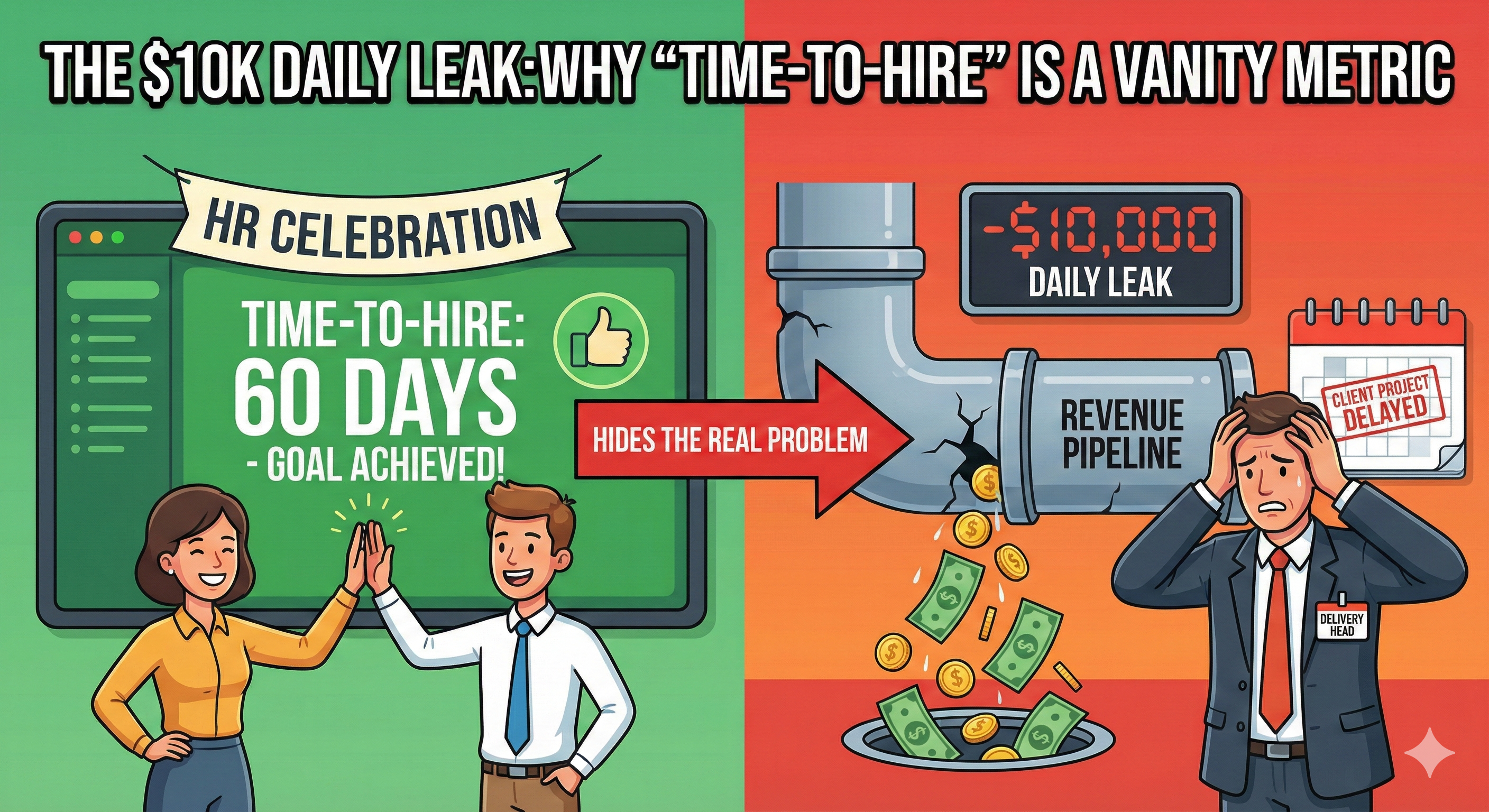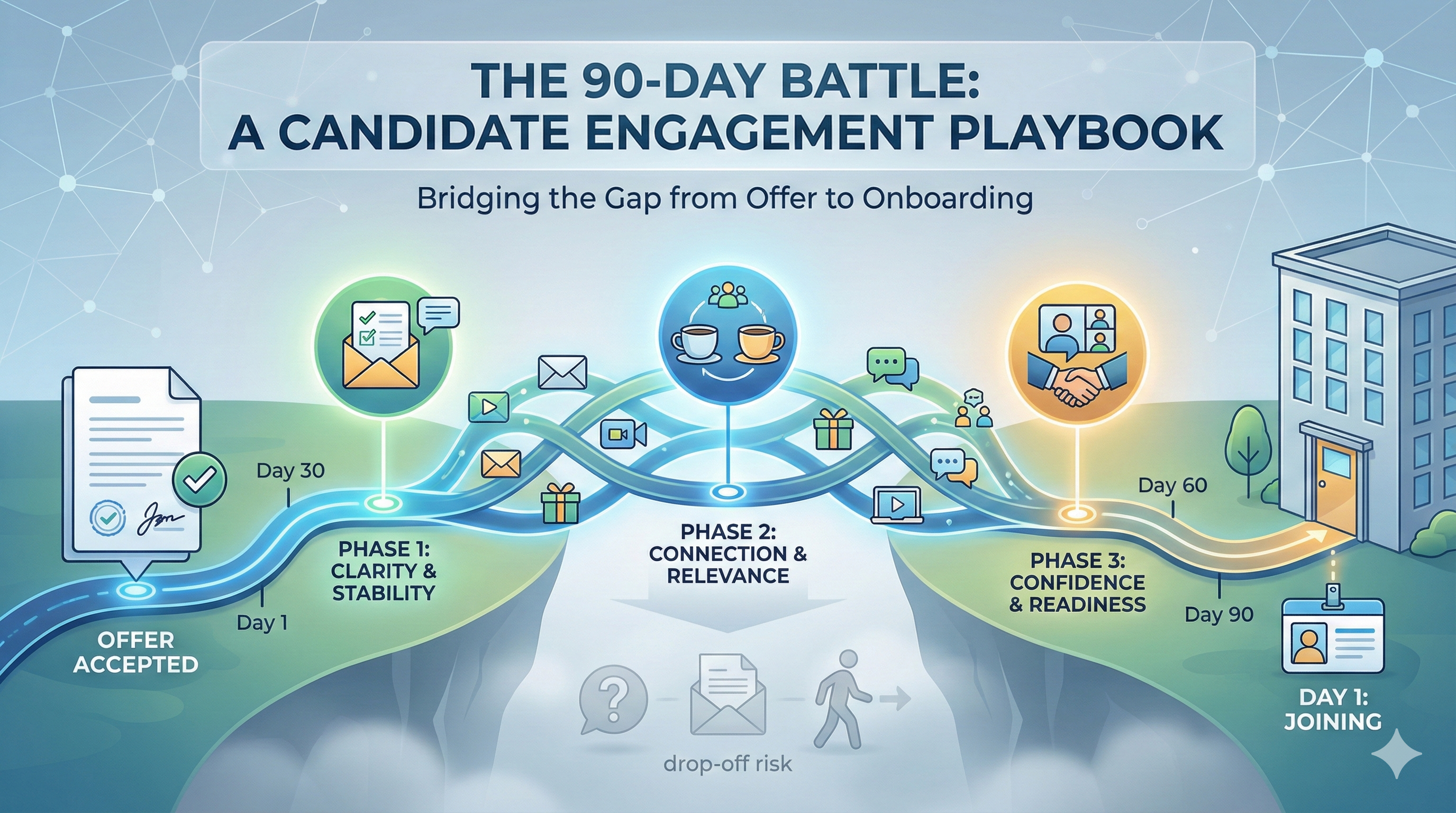Table of content
Organizations invest significant resources in finding and securing top talent. The recruitment process involves multiple stages—job postings, resume screening, interviews, assessments, and negotiations. But after all this effort, a surprising number of candidates who accept offers never show up on their start date or leave within the first few months.
This post-offer dropout creates a costly leak in the recruitment pipeline.
Each candidate who disappears represents wasted recruitment costs, productivity losses from unfilled positions, and additional strain on teams covering the gaps. The problem is particularly acute in competitive industries — banking, IT, technology, etc. — where candidates often juggle multiple offers.
This "ghosting" phenomenon has increased dramatically in recent years, forcing organizations to overextend offers just to meet their hiring targets.
Traditional approaches have failed
Most companies have attempted to address this challenge, but conventional methods show limited effectiveness:
- Standard automated email sequences follow rigid timelines regardless of candidate engagement levels. These generic communications often feel impersonal and fail to address specific candidate concerns.
- Manual follow-up by recruiters can be effective but doesn't scale. With recruitment teams handling dozens of open positions simultaneously, they can't provide consistent, personalized attention to every candidate who has accepted an offer.
- Pre-boarding portals and paperwork-focused approaches tend to create administrative burdens rather than meaningful connections during this critical transition period.
These conventional methods share a fundamental limitation: they treat all candidates identically, ignoring their unique circumstances and engagement patterns. They operate on fixed schedules rather than responding dynamically to candidate behavior and needs.
Agentic AI shows a new approach to post-offer engagement
Agentic AI offers a promising solution that addresses these limitations. Unlike basic automation or general AI tools, agentic AI systems can independently manage the entire post-offer relationship without constant human oversight.
What exactly is agentic AI?
It represents artificial intelligence that can act autonomously to achieve specific goals rather than simply responding to direct commands. While traditional AI waits for instructions at each step, agentic AI takes initiative – planning and executing multiple actions toward a larger objective.
Standard automation sends scheduled emails on predetermined days. General AI can create personalized content when explicitly asked to do so.
Agentic AI, however, actively manages candidate relationships, recognizes engagement patterns, and adapts strategies accordingly – all without requiring specific instructions for each interaction.
The system continuously monitors candidate engagement, identifies potential warning signs of disengagement, and adjusts communication approaches independently. It learns from each interaction to improve future engagements, creating a scalable solution that delivers the personal touch needed during this crucial period.
This capability transforms post-offer management from a passive waiting game into an active engagement strategy that significantly reduces dropout rates and ensures candidates arrive excited for their first day.
3 Ways to Use Agentic AI in Post-Offer Engagement
Personalized Engagement Pathways Based on Candidate Risk Profiles
Most companies send identical communications to all candidates after offer acceptance. This one-size-fits-all approach fails to address individual concerns and engagement levels. Agentic AI transforms this by creating dynamic communication journeys tailored to each candidate's unique situation.
The AI evaluates numerous factors to determine a candidate's dropout risk:
- Length of notice period (longer periods = higher risk)
- Seniority level (executives have more competing offers)
- Market demand for their skills
- Communication patterns after offer acceptance
- Previous hiring outcomes for similar profiles
Based on this analysis, the agentic system creates personalized engagement strategies.
High-risk candidates receive more frequent check-ins with targeted content addressing their specific concerns. For candidates in high-demand fields, the system might arrange virtual coffee chats with future team members to strengthen emotional connection to your organization.
Unlike traditional communication flows that follow fixed timelines, these pathways evolve based on candidate responses. If someone shows enthusiasm for company culture, the AI autonomously shares more culture-related content. If another expresses anxiety about their new role, it provides reassurance and relevant resources without human intervention.
This responsive approach creates a personalized experience that maintains enthusiasm during long notice periods and significantly reduces "ghosting" rates.
Pre-Boarding Experience Orchestration
The administrative aspects of joining a new company often create friction and anxiety rather than excitement. From paperwork requirements to equipment setup and training schedules, the process can feel overwhelming and impersonal. Agentic AI can transform this candidate experience.
Instead of simply following a standard pre-boarding checklist, an agentic system creates a coordinated journey that:
→ Spreads administrative tasks strategically over the notice period instead of overwhelming candidates with everything at once
→ Introduces new hires to relevant company systems gradually with personalized tutorials based on their role and technical comfort level
→ Coordinates across multiple departments (HR, IT, facilities, team leaders) to ensure seamless preparations for day one
→ Provides just-in-time information about practical matters like parking, building access, and first-day schedules
What makes this truly "agentic" is the system's ability to handle exceptions and special cases without human intervention. When a candidate requests special accommodation for their workstation, the AI can coordinate with facilities. If document submission is delayed, it intelligently reschedules downstream dependencies and keeps all stakeholders informed.
Through continuous interaction and feedback, the system learns each candidate's communication preferences and adapts accordingly—providing a consistent yet personalized experience regardless of which recruiter originally managed the hire.
Early Team Integration & Cultural Immersion
Many candidates experience anxiety about fitting into their new team and company culture during the post-offer period. Traditional approaches either ignore this concern or address it superficially through generic company information.
Agentic AI can create meaningful connections before day one by:
- Analyzing the candidate's background and interests to identify potential mentors within your organization
- Arranging virtual introductions with carefully selected team members who share professional or personal interests
- Creating personalized learning paths that expose the candidate to relevant aspects of company culture and values
- Sharing targeted stories and content that align with the candidate's expressed interests and career aspirations
The agentic system continuously gauges the candidate's engagement with these initiatives and adjusts accordingly.
For instance, if a future marketing manager shows particular interest in your company's sustainability efforts, the system might connect them with the sustainability team and share relevant case studies.
This approach creates psychological commitment that significantly reduces the chance of candidates accepting competing offers. By the time they arrive for their first day, new hires already feel connected to your organization and team—accelerating productivity and reducing early turnover.
The system can even prepare team members to welcome new colleagues by sharing appropriate information about incoming hires, ensuring everyone is prepared for a smooth integration.
Building the foundation for your post-offer agentic ai journey
While agentic AI represents the future of post-offer engagement, its effectiveness depends entirely on having clean, structured recruitment data. This is where RippleHire's High Performance ATS creates the perfect starting point.
RippleHire provides the essential foundation you'll need:
- Complete digitization of your candidate journey from application to onboarding
- Structured data architecture that captures every candidate interaction
- Seamless integrations with tools from Workday to WhatsApp that agentic AI can leverage
- Enterprise-grade security framework (ISO 27001, GDPR, SOC 2 certified)
Leading enterprises across India have already transformed their candidate experience with RippleHire, achieving 4.8/5 candidate satisfaction scores. Companies like Axis Bank, TATA AIA, and LTIMindtree use the platform to deliver exceptional experiences today while preparing for AI advancements tomorrow.
Schedule a demo to see how RippleHire can build your recruitment data foundation – the essential first step toward agentic AI implementation.
Frequently Asked Questions
What exactly causes new hire ghosting after offer acceptance?
New hire ghosting typically happens when candidates receive better offers during their notice period or lose excitement about joining your company. Long waiting periods without meaningful engagement often lead to doubts and reconsideration.
Other factors include counter-offers from current employers, concerns about fitting into the new team culture, and administrative friction during pre-boarding that creates negative impressions before day one.
How is agentic AI different from standard automated emails for keeping candidates engaged?
Standard automated emails follow fixed schedules and send identical content to everyone, regardless of how they respond. They can't adapt when candidates show signs of disengagement.
Agentic AI actively monitors how candidates interact with your communications and adjusts its approach accordingly. It creates personalized engagement paths, recognizes warning signs of potential dropout, and takes independent action to address concerns without needing human direction at each step.
What signs might indicate a candidate is at risk of ghosting before their start date?
Watch for delayed responses to communications, decreasing engagement with pre-boarding materials, and reluctance to complete paperwork. Candidates asking to postpone start dates often signal uncertainty.
Sudden questions about policies or benefits they didn't previously inquire about might indicate they're comparing offers. Agentic AI can detect these subtle patterns across multiple communication channels and respond proactively before the candidate disappears.
How soon after offer acceptance should we implement agentic AI engagement?
Start immediately after offer acceptance when candidate excitement is highest. The first 48 hours are crucial for maintaining momentum and establishing engagement patterns.
This immediate connection helps the AI begin building its understanding of the candidate's communication preferences and interests. Early engagement also demonstrates your organization's commitment to creating a positive experience from the very beginning of the employment relationship.
Can agentic AI help reduce ghosting for candidates with very long notice periods?
Yes, agentic AI is especially valuable for candidates with long notice periods (2-3 months) who face the highest ghosting risk. The AI creates sustained engagement through personalized touch points spread strategically across the waiting period.
It keeps candidates connected through virtual team introductions, role-specific learning resources, and cultural immersion activities. This ongoing connection maintains excitement and creates psychological commitment that makes candidates less likely to accept competing offers.
What kind of results can we expect when implementing agentic AI for post-offer engagement?
Organizations implementing agentic AI for post-offer engagement can expect to see substantial reductions in new hire ghosting rates. Many report improvements in candidate satisfaction scores and faster productivity ramp-up after joining.
The technology also reduces recruiter workload by automating routine follow-ups while ensuring no candidate falls through the cracks. The exact impact depends on your current ghosting rates and how effectively you implement the AI system.



